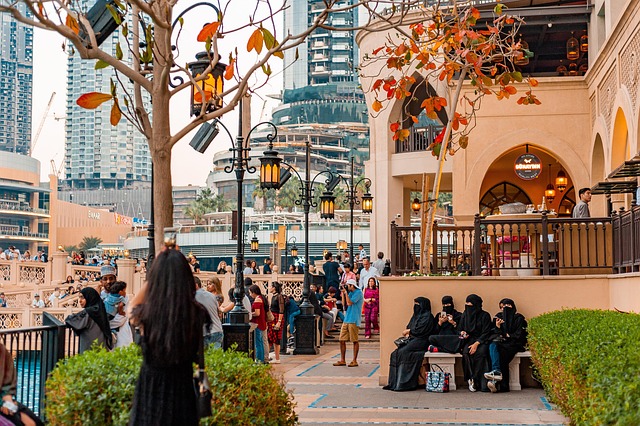Is Bybit Regulated in UAE? What UAE Traders Need to Know
Author: Jameson Richman Expert
Published On: 2025-10-31
Prepared by Jameson Richman and our team of experts with over a decade of experience in cryptocurrency and digital asset analysis. Learn more about us.
Is Bybit regulated in UAE is a common and important question for traders and investors based in the United Arab Emirates. This article explains the current regulatory landscape in the UAE, how to verify whether Bybit (or any crypto platform) holds a UAE license, the practical implications for UAE users, safe alternatives, and step-by-step checks you can perform today. Read on for clear, actionable guidance and authoritative resources to help you trade more safely and with confidence.

Quick answer: regulation status and why it matters
Short answer: regulation for crypto firms in the UAE is handled primarily by the Dubai Virtual Assets Regulatory Authority (VARA) and the Abu Dhabi Global Market Financial Services Regulatory Authority (ADGM FSRA). As of mid‑2024 and based on public records available at that time, Bybit did not appear on official UAE regulator public license registers as a fully licensed VARA or ADGM FSRA digital asset exchange. However, licensing statuses change frequently. Traders must verify the current status on the regulator sites and the exchange’s official legal disclosures before transacting.
Why "is Bybit regulated in uae" is a vital question
- Consumer protection: Licensed exchanges usually must meet capital, custody and operational standards that increase the chance of safe handling of client assets.
- Compliance and AML/KYC: Regulation enforces Know-Your-Customer and anti-money-laundering rules, lowering certain fraud risks.
- Recourse: If something goes wrong, regulated platforms are subject to oversight and can be investigated or sanctioned by the regulator.
- Market access: Some regulated entities restrict services to UAE residents differently from global platforms; knowing status avoids surprises with deposit/withdrawal limits or suspended services.
UAE regulatory framework for crypto — quick primer
Understanding who regulates what in the UAE helps answer the question “is Bybit regulated in uae.” The UAE’s framework is region-based rather than centralized:
- VARA (Dubai): Established to regulate virtual asset activities in certain Dubai free zones (for example, Dubai World Trade Centre). VARA publishes licensing rules and public registers of authorized firms.
- ADGM FSRA (Abu Dhabi): ADGM is an international finance centre with its own regulator (FSRA). It was an early mover on crypto licensing and hosts regulated crypto exchanges and custodians.
- Central Bank of the UAE: Issues high-level guidance and supervises banking-crypto interfaces and AML/CFT frameworks nationwide.
Because jurisdictional responsibility is divided, a company can be licensed in ADGM or under VARA or operate in other UAE free zones with different requirements. Always check the applicable regulator for the license claim.

How to verify whether Bybit is regulated in UAE — step-by-step
- Check the official regulator registers: Visit VARA’s website (https://vara.ae/) and ADGM’s directory (https://www.adgm.com/) and search for Bybit or the legal entity name listed on Bybit’s Legal or About pages.
- Review the exchange’s legal pages: Look for clear statements about licensed entities, license numbers, and the legal entity name (e.g., “Bybit Fintech Limited” vs “Bybit Global” etc.). Legit pages usually include a license number and link to the regulator.
- Confirm the license number with the regulator: If a license number is shown, check that it appears in the regulator’s public register and that the license scope covers the services you intend to use (e.g., custody, exchange, derivatives).
- Check local communications and press releases: Reputable licensing is typically accompanied by regulator announcements or press coverage from reliable outlets.
- Contact the regulator if unsure: If you can’t confirm via public registers, email or call the regulator for confirmation. This is the most reliable step.
Examples of where to verify: VARA license search and ADGM FSRA Directory. For global context, you can also check Bybit’s Wikipedia page for corporate background: Bybit — Wikipedia.
Is Bybit currently regulated in UAE? What public evidence shows
Because license statuses change, this section provides a responsible approach rather than a definitive claim. At the time of the last public audits in mid‑2024, searches of VARA and ADGM registers did not show a Bybit entity explicitly licensed for retail or institutional services in those U.A.E. regulatory lists. However, exchanges frequently pursue licensing applications and may announce approvals after regulatory review. Therefore:
- Do not assume an exchange is regulated in the UAE simply because it markets to UAE users or mentions “Middle East operations.”
- Look for an explicit license from VARA or ADGM with a license number and scope.
- If Bybit announces a license, confirm it using the regulator’s website and press release.
If you want up-to-date confirmation from Bybit itself, check their legal disclosures or announcements page and follow the license verification steps listed above. Also consult the VARA and ADGM registers directly — they are authoritative.
What regulation (or lack of it) practically means for UAE users
Knowing whether Bybit is regulated in UAE affects what protections and limitations you face:
- If it is regulated: You can expect formal AML/KYC checks, clearer account protection and dispute channels, and potential local oversight for asset custody and operational conduct.
- If it isn’t regulated: You may still use Bybit’s global services, but your legal protection is weaker; you rely on the exchange’s terms and the laws of the exchange’s home jurisdiction rather than UAE regulator protections. This can affect dispute resolution, bankruptcy treatment, and enforcement.
Many traders use unregulated international exchanges with success, but it increases counterparty risk. If you hold large balances or trade derivatives, the additional layer of regulatory oversight can be important.

Risks to consider when using an exchange not regulated in the UAE
- Reduced recourse in case of insolvency or fraud.
- Unclear custody arrangements for client assets.
- Possible restriction on local banking integrations (deposits/withdrawals).
- Potential for sudden service changes or geo-blocking if regulators or banks intervene.
Always conduct due diligence and consider limiting exposure on a single unregulated platform. Use best practices (cold storage for long-term holdings, strong 2FA, and withdrawal whitelist) and consider regulated alternatives where appropriate.
If Bybit is not licensed in the UAE — what are the practical choices?
- Use a licensed UAE exchange: Choose exchanges licensed by VARA or ADGM for higher regulatory protection. The regulator directories list authorized firms.
- Use a reputable international exchange with strong compliance: Some global platforms maintain robust compliance and insurance policies even if not licensed locally. For example, you might consider known global alternatives (register links below) after checking their terms.
- Custody strategy: For large positions, consider moving long-term holdings to cold wallets or regulated custodians rather than leaving them on any exchange.
- Contact support and read T&Cs: Understand the exchange’s dispute resolution and how it handles requests from local authorities.
Recommended checks before you deposit or trade
- Confirm license details on the regulator site.
- Check the exchange’s proof of reserves, if available.
- Verify the jurisdiction of the legal entity that will hold your funds.
- Confirm KYC procedures and withdrawal limits for UAE users.
- Read community reports and verified audits or third-party security reviews.

How to interpret claims of “licensed in Dubai” or “UAE-approved”
Marketing language can be misleading. Phrases like “licensed in Dubai” can refer to specific free zones, or an agreement with a licensed local partner. Always demand:
- Exact legal entity name
- License number and regulator link
- Scope of the license (custody, exchange, derivatives)
If those details are missing or vague, treat the claim with caution and verify directly with the regulator.
Practical example: verifying a license (walkthrough)
- Go to VARA’s website: https://vara.ae/ and find “Licensed Entities” or “Public Register.”
- Type the exchange’s legal entity name shown on their site (not just the brand name).
- Match the license number and the scope of permitted activities.
- If you do not find it, check ADGM’s directory at https://www.adgm.com/.
- As a final step, contact the regulator with the entity name to request verification.
This process protects you against false claims and gives clear evidence for future disputes.
Alternatives and trusted exchanges for UAE users
Whether or not Bybit is regulated locally, some traders prefer exchanges that are or have strong compliance footprints. Consider these options and verify licenses yourself:
- Binance (registration link) — large global exchange with multi-jurisdictional operations (verify local licensing).
- MEXC (invite link) — another global crypto platform; check local availability and rules for UAE users.
- Bitget (referral link) — derivatives-focused exchange; confirm jurisdictional compliance.
- Bybit (invite link) — check Bybit’s legal pages and regulator statements before depositing.
Remember: referral links do not substitute for regulatory verification.

Practical trading tips for UAE residents using global exchanges
- Keep KYC current: Comply with the exchange’s KYC to avoid sudden account limitations.
- Use bank-friendly payment rails: Confirm with your bank whether outgoing transfers to a particular exchange are permitted.
- Use risk management tools: Keep leverage conservative and use stop losses, especially on derivatives.
- Separate custody: For savings or large holdings, prefer hardware wallets or regulated custodians.
- Stay informed: Follow regulator announcements from VARA and ADGM to know if licensing or compliance policies change.
Useful official resources and authoritative reading
- VARA (Dubai Virtual Assets Regulatory Authority): https://vara.ae/
- ADGM and FSRA (Abu Dhabi Global Market): https://www.adgm.com/
- Central Bank of the UAE: https://www.centralbank.ae/
- Bybit background (Wikipedia): Bybit — Wikipedia
Further reading and practical guides
To help with trading mechanics, troubleshooting, and advanced setups, consider these practical guides and tutorials:
- What to do when you’ve exceeded your remaining trading limit — causes & fixes
- XRP future price prediction and market outlook (2025)
- What is the best cryptocurrency website — in-depth guide (2024)
- How to verify the authenticity of Binance trading apps
- Pro tips: using multiple charts in TradingView effectively

Common user FAQs about Bybit and UAE regulation
1. Is it illegal to use Bybit in the UAE if it’s not licensed?
Generally, using an unlicensed foreign exchange is not automatically illegal for a retail trader, but local laws and bank rules may restrict payments or require reporting. Always follow UAE tax and AML reporting rules and consult local counsel for personal legal advice.
2. Can UAE regulators compel a foreign exchange that is not licensed locally?
Regulators have limited direct authority over foreign entities, but they can restrict banking relationships, block local on-ramps, or issue warnings. If the exchange operates a local entity, the regulator’s powers are greater.
3. What protections do regulated exchanges offer that unregulated ones don’t?
Regulated platforms typically have minimum capital and custody rules, periodic audits, AML controls, and mandated complaint processes. These provide more formal protection layers for customers.
Conclusion — practical takeaways for UAE traders
“Is Bybit regulated in UAE” is the right question to ask before depositing or trading. Because the UAE’s regulatory landscape divides responsibilities across VARA and ADGM, you must verify any licensing claim via the relevant regulator’s public register. As of mid‑2024, publicly available records did not show a clear VARA or ADGM license for Bybit; however, license situations evolve. Protect yourself by verifying license numbers, reading legal disclosures, and applying conservative custody and risk-management strategies. If you prefer regulated local protection, choose exchanges explicitly listed by VARA or ADGM or use regulated custodians for large holdings.
For practical help with account limits, platform authenticity, technical charting, and market outlooks, see the guides linked above from CryptoTradeSignals and the official regulator resources. If you’re comparing alternatives, check the registration links provided and confirm the most recent regulatory updates before trading:
If you want, I can run a current check (live) against VARA and ADGM registers for Bybit and prepare an updated verification report you can use when contacting the exchange or regulator. Would you like that?